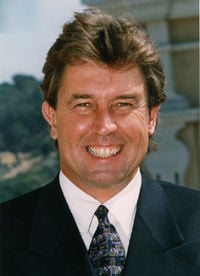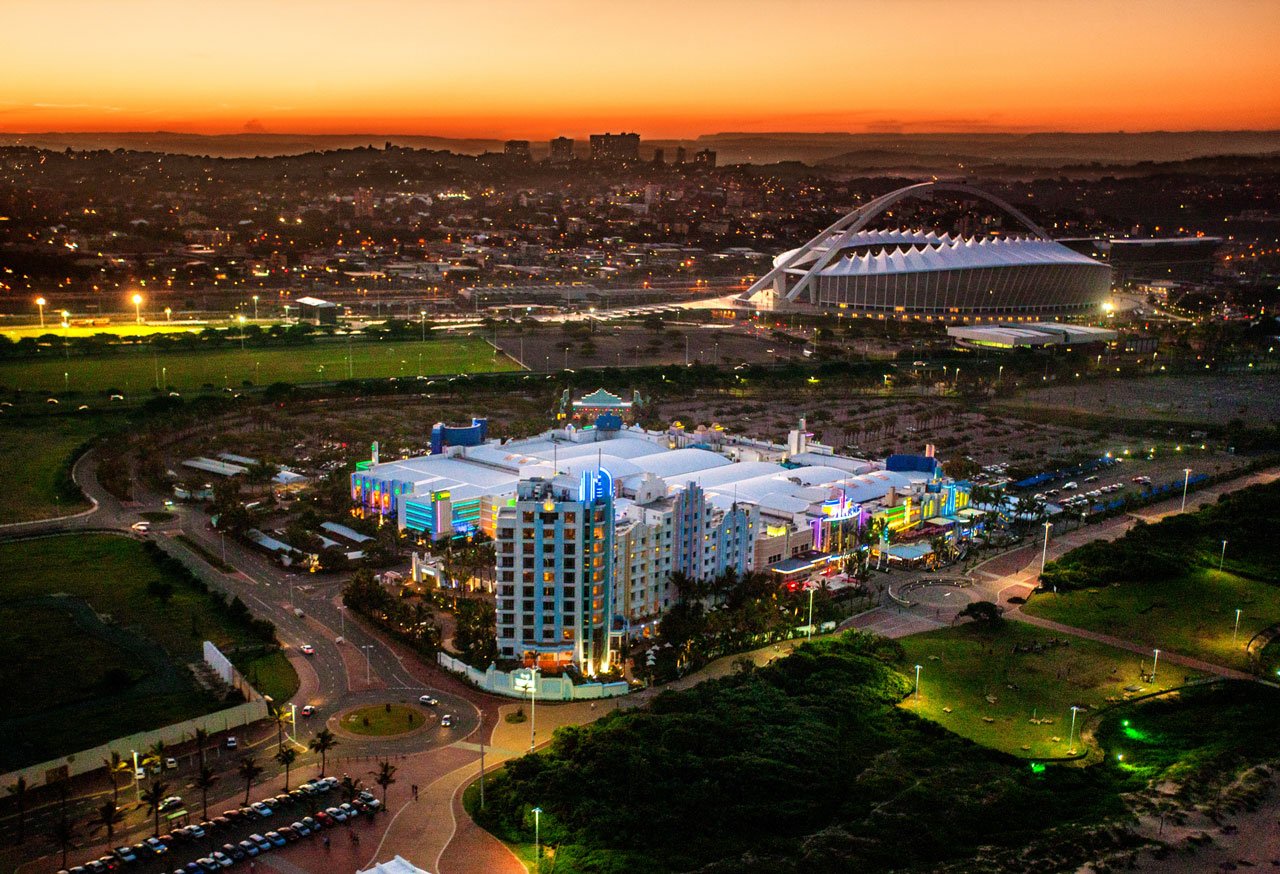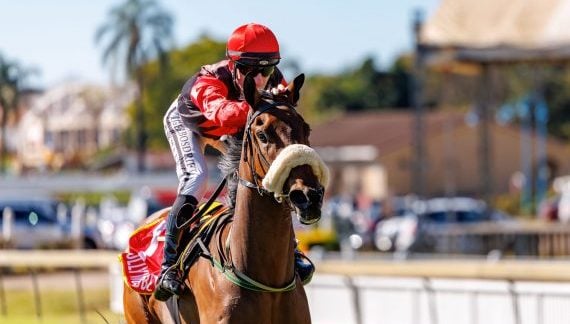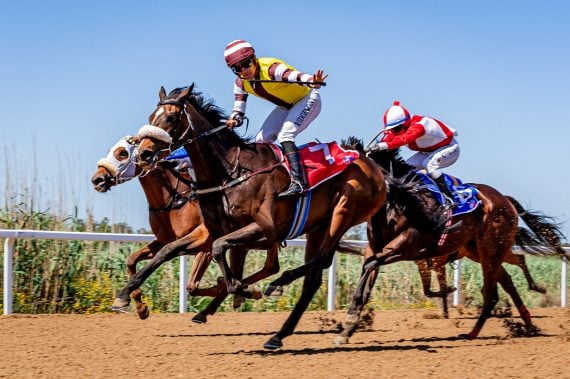Steve Sherack caught up with the 60-year-old native Trevor Denman of South Africa as he prepares to call the action during this weekend’s Breeders’ Cup at the Great Race Place. And ahhwaay they go…
It’s all about the Breeders’ Cup right now. What have been some of your favourite moments? Wow, obviously Zenyatta at Santa Anita in 2009–not only the best Breeders’ Cup moment, I would also think the best moment in horse racing history, in my career at least. That was great, but there have been a lot of them. The one at Monmouth Park with Midnight Lute’s win and Curlin winning the Classic, and also Goldikova’s (back-to-back) wins (in the Mile). I know I’ll be driving down the freeway in a few hours and I’ll think, Wow, why didn’t I mention that.’ There are so many of them, but those are the ones that jump out at me.
Is there a race or horse that you’re looking forward to seeing the most at this year’s Championships? To me, the horse of the two days is going to be game on Dude. If you had to have a star billing, I’d say it would be him and probably Royal Delta second. We don’t have a Zenyatta this year, but at least we’ve got evenly-matched fields.
In addition to Game on Dude, are there any other Southern California-based horses that stand out to you after watching them firsthand throughout the year? Gervinho is going to be very interesting (Juvenile Turf). He’s a very nice looking horse with a long stride. Beholder (Juvenile Fillies) has been very impressive, too. It’ll be very interesting to see how they do. Of course, Baffert’s got his usual plethora out there. Executive privilege (Juvenile Fillies) is unbeaten, but isn’t a superstar quite yet. Those are the ones that I’m looking forward to seeing the most.
In terms of the biggest racing days–the Triple Crown, Dubai World Cup, Royal Ascot, etc. — where do you think the Breeders’ Cup ranks among the best? The Saturday card is very good. To be perfectly honest, it’s being diluted now that we have 15 races instead of seven. When they had the seven, I would’ve put it just a nose behind Kentucky Derby day. When you go from seven races to 15, you’re going to dilute the quality–its common sense. It’s obviously still up there though. In America, I think it’s a way bigger day than the Dubai World Cup. I think maybe places like England, France, and South Africa, Dubai World Cup day is bigger than Breeders’ Cup day. But for us, this is still definitely the second best day of the year.
You’ve obviously been doing this for a long time, but do you still get any nerves when calling the BC races? Oh yeah, you do [laughs]. The only way I could relate it to the American public by would be American football. You could go out there and call the games every Sunday afternoon–yeah it’s a big day, but when it’s Super Bowl Sunday, it’s human nature (to get nervous). If the adrenaline doesn’t kick in, there’s something wrong with you.
In terms of preparation, not only for the Breeders’ Cup races, but on a day-to-day basis, how much work goes in behind-the-scenes being a track announcer? On the average day, I’d say between two and three hours depending on the size of the fields and number of races. But for the Breeders’ Cup, it goes up tenfold. My big disadvantage is that so few of the horses are from California. I actually got pretty lucky this year, I did a rough calculation and about 30% of them are locals. But normally, when we go to Kentucky or somewhere else, it’s closer to 15%. You’ve never seen, let’s say 70% of the horses before, so you need to go to those sites that show you replay’s and at least take a look at the horses so you can get a vague idea of their running style, what they look like, what their colours are, etc. And obviously that takes a long time. Breeders’ Cup is like no other day. If you’re doing the Kentucky Derby, basically that’s one race. This is 15 races and you have to treat each one as though it is the Classic. You can’t treat any race any lesser.
How were introduced to the sport growing up in South Africa? South Africa was huge in racing when I was growing up. I was born in 52 and got involved in 57. Horse racing was massive during the 50’s & 70’s in South Africa. I would compare it to the old days in America when Man O’War would make the front page of the newspaper–not the front page of the sports section. You couldn’t go in a restaurant or a bar without people talking horseracing. Horse racing back in South Africa in the 60’s would be like American football and baseball today in America. I wanted to be a jockey when I was little, but they had an academy that you had to go to and they decided whether you could become a jockey or not. You had absolutely no say in the matter. You went before a panel and they said yes or no. If they said no, that was it, you were done. And they said no to me because I was going to grow and I’m 5′ 7″ now. Not tall, but tall for a jockey. But anyway, they were right. I just got extremely lucky. I pursued announcing and I got a job when I was 18 and everything just went from there.
What do you love most about the sport that keeps you coming back for more? The majesty of the horse. Take the gambling part out of it, etc. I have a little saying that I think that a cheetah and a Thoroughbred racehorse are the two most magnificent-looking animals in the world. When you look at a racehorse in the paddock and he’s chomping away at the bit, pulling the groom around, and kicking and bucking, man what a magnificent specimen!
Is there a specific type of race that you enjoy calling more than others? Long distance is my forte. There’s so much more happening. As American racing would have it, the majority of long-distance races are on the turf. There’s just so much more tactics involved. A jockey can’t just jump out of the gate and send like they do over six furlongs. There’s much more skill involved. Without a shadow of a doubt, long-distance turf races are my favourite.
What’s your favourite part about being a track announcer/what do you enjoy most about your job? I try to be an artist rather than just joining the dots. Each race represents a new challenge. Every race is different and you’ve got to try and paint a picture. That’s the challenge to me. If you just had to name it like they did it in the old days–so and so is first, second, third, etc., oh my goodness, I’d be bored stiff. You’ve got to paint the picture.
If you weren’t announcing, are there any other jobs in the industry that interest you? I’m knocking off the no’s. No to a jockey; too dangerous. No to a trainer; too tough to make a living. I would’ve said a steward a few years ago, but I don’t think so anymore. Probably when the day comes, it will be time to call it quits. If I could buy a nice horse and have a Grade I winner, which would be great. I’d be an owner tomorrow, but you can’t guarantee that.
Extract from Thoroughbred Daily News









